Ivy Queen Knows Precisely Why She’s a Reggaetón Icon
- Oops!Something went wrong.Please try again later.
- Oops!Something went wrong.Please try again later.
- Oops!Something went wrong.Please try again later.

Ivy Queen arrives in full color-coordinated regalia — a form-fitting, floor-length dress in lemon hues that match her long, yellow-tipped acrylic nails and the curly, beach blonde locks that reach her waist. Standing still and ramrod straight, her eyes surveying the room from under impossibly long lashes, she has the bearing of, well, a queen.
Related

Ivy Queen: Photos From the Billboard Women in Music Shoot
It’s a far cry from nearly 25 years ago, when Martha Ivelisse Pesante Rodríguez, then 25, walked into the San Juan, Puerto Rico, studios of The Noise, the all-male rap collective formed by the pioneering DJ Negro, who sized her up: a country bumpkin from the island’s west side, her tiny frame dwarfed by oversized jeans and a T-shirt, hair tied in “500 braids,” lips painted blue, nails like talons.
More from Billboard
“What’s your name?” he asked. “Ivy Queen,” she replied, without hesitation. “I have a song called ‘Somos Raperos, Pero no Delincuentes’ [‘We Are Rappers, Not Delinquents’].” Overcome by shyness, she then flipped the mic around and rapped, facing the wall. But even with her back to him, DJ Negro was impressed. “Welcome to The Noise,” he said. “You know we don’t have girls here, right? You’re the first one.”
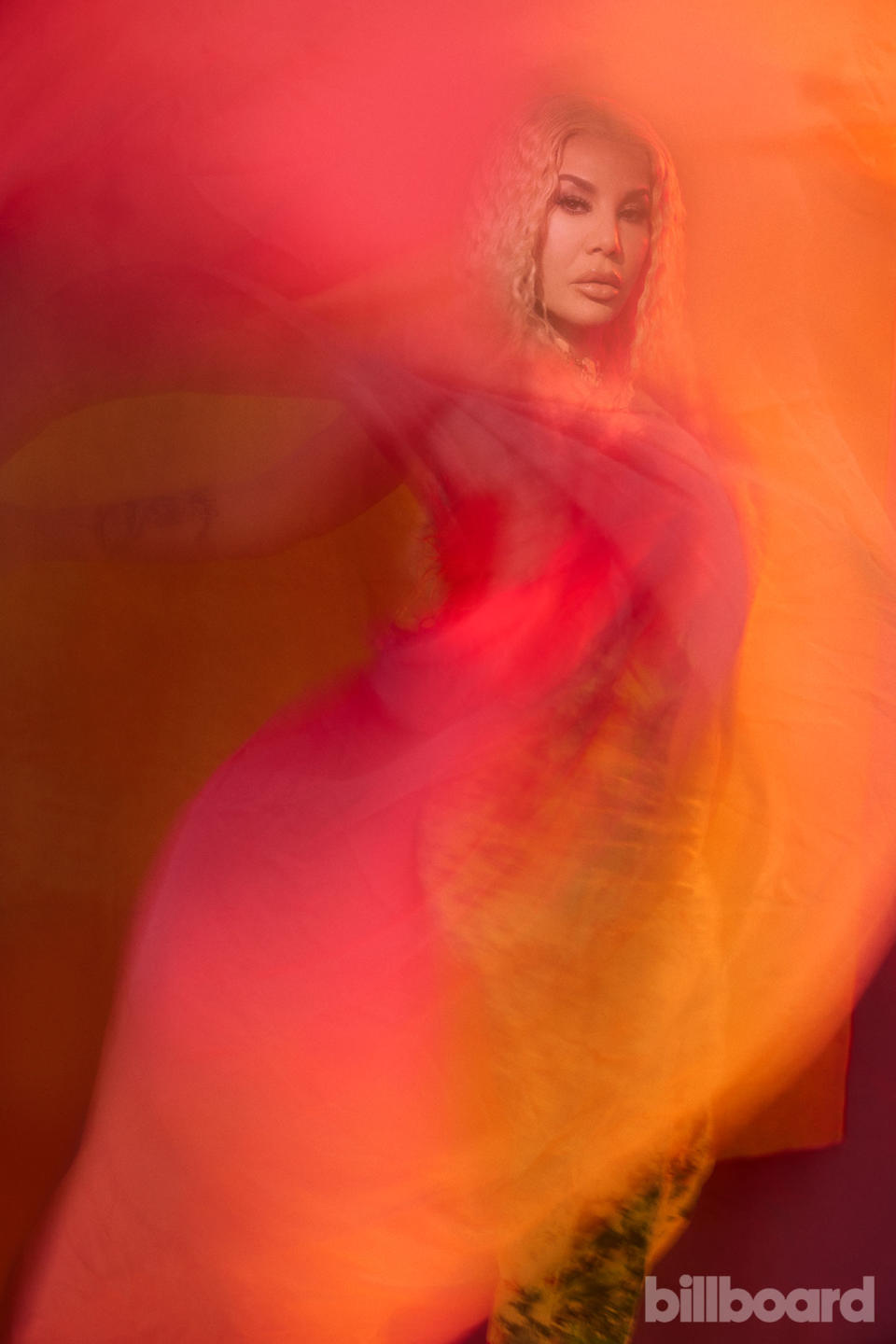
It was 1995, a time when the Puerto Rican airwaves were dominated by glamorous, big-voiced pop divas like Ednita Nazario and Yolandita Monge, and when reggaetón and rap were still underground movements dominated by men.
“When I started in this music industry, I didn’t look like I look right now,” says Ivy Queen, noting she was relentlessly criticized for her deep voice, her fashion choices and her staunch refusal to exploit her sexuality.
“Today it’s all about the look, but for me it was all about the music and about what I [could] bring,” she says. “How to be unique and not have a similarity to anyone else. I needed to learn how to fight with words.”
And sure, Ivy could rap, but writing was her secret weapon. “I used to go to a lot of freestyle competitions and study everything around me — the male behavior and how they went at each other with lyrics,” she remembers, “and that’s how I protected myself. I won my own spot. No one gave it to me. I’m notorious because I stomped on the guys.”
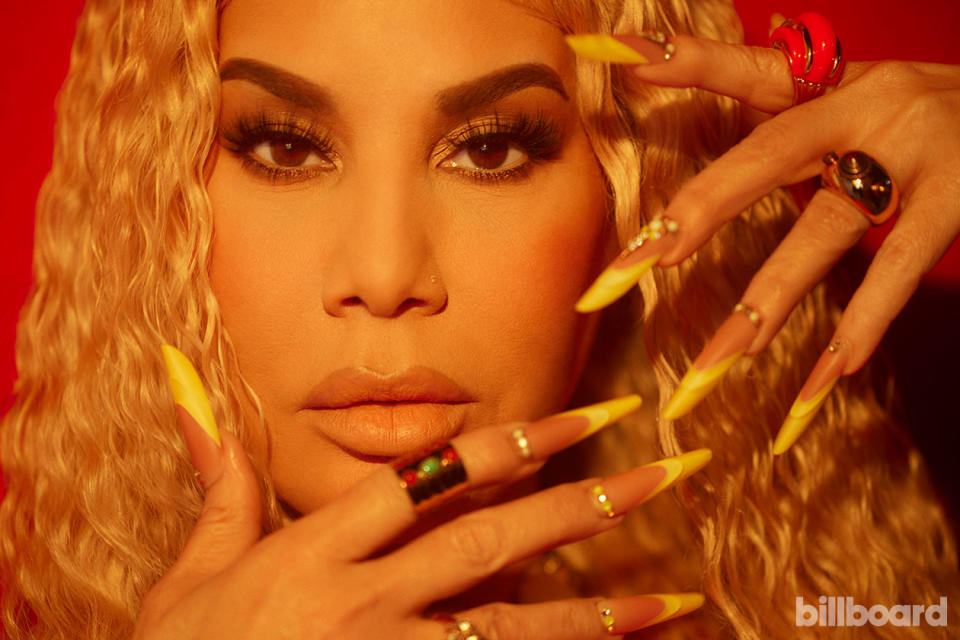
It took her nearly a decade, but in December 2003 she entered the Billboard charts for the first time with “Quiero Bailar,” then gained notoriety the following year as one of the 12 essential reggaetón artists, and the only woman, featured on Eddie Dee’s “Los Discípulos” (“The Disciples,” off his 12 Discípulos), where the likes of Vico C, Tego Calderón, Voltio and Daddy Yankee jockeyed for dominance.
Ivy Queen’s lines, written on the spot — “Quítate tu que llegó la caballota, la perra, la diva, la potra, la mami que tiene el tumbao” (“Get out of the way for the caballota, the b–ch, the diva, the mare, the mami with the swagger”) — and later her 2005 Latin Grammys performance of the song as the only woman among the men confirmed her entry into the top echelon of reggaetón.
“The first time I felt empowered in my life was when I learned and sang her verse from ‘Los Discípulos,’ ” says Elena Rose, who has co-written tracks for Rosalía, Bad Bunny and Becky G. “Ivy is the queen, and we have much to thank her for; for all the doors that were shut to her and she broke down for Latinas in urban music.”
In September 2005, “Quiero Bailar” peaked at No. 16 on the Tropical Airplay chart and debuted on Hot Latin Songs and Latin Airplay. Its chorus, describing how arousal and flirtation do not translate to consent, defined Ivy Queen’s ethos and personality, while also changing how women in reggaetón and beyond were perceived.
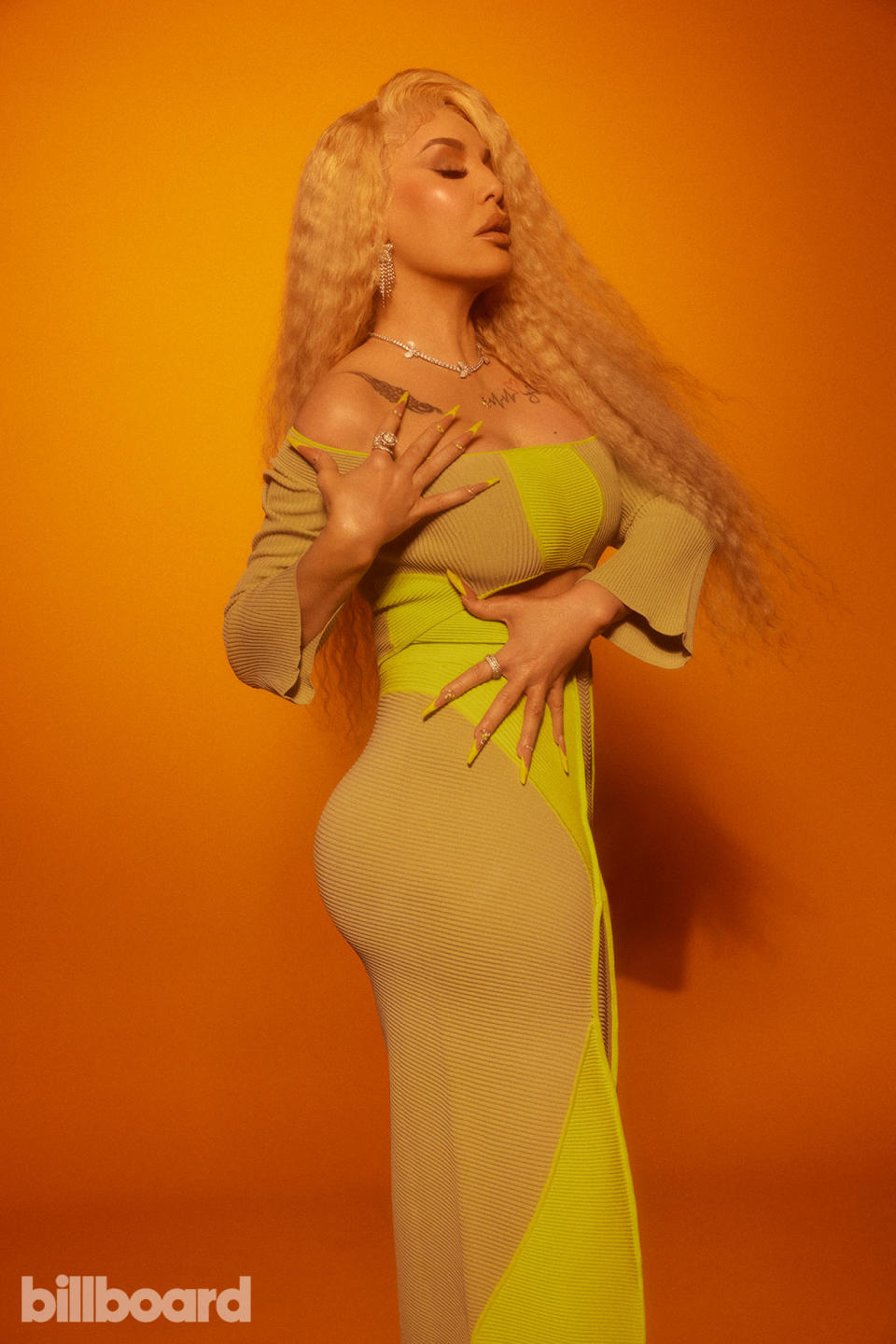
“In the history of reggaetón, we have to talk about a ‘before and after’ Ivy Queen,” says Puerto Rican attorney Edwin Prado, who has worked with virtually every major reggaetón artist, from Daddy Yankee to Anuel. “Before her, female artists sang poppy tunes focused on erotic dances and physical attributes. After Ivy, the musical conversation changed. Her songs spoke about the reality of the streets, and when she spoke about romance, it wasn’t about exploiting her looks.”
Back then, Ivy Queen didn’t have other women to collaborate with — and few men extended a helping hand. Still, she landed 11 solo entries on Billboard’s Latin Rhythm Albums chart, including eight top 10s and two No. 1s, over the next decade. On Latin Rhythm Airplay, she has 20 entries — the third-most among women, behind Natti Natasha (25) and Karol G (24), both next-gen stars who benefited from the doors she opened. And while she hasn’t cracked the top 10 since 2010, with her chart-topping smash “La Vida Es Así,” the queen, at 50, has endured. Most recently, she hosted Loud, a Spotify podcast on the history of reggaetón. On Feb. 23, she was honored at Univision’s Premios Lo Nuestro with the legacy award in urban music. And in addition to new music, this year’s Icon is working on a memoir, a makeup line and a film based on her life.
Ironically, many of the trademarks the press and even Ivy’s fellow artists once criticized her for — her multicolored braids, the long nails, the deep voice — are now de rigueur among younger urban female artists. But her messages of empowerment, she feels, often get lost.
“Many women think empowerment today is saying, ‘Give it to me here, give it to me there,’ ” she says ruefully. “That the more clothes you take off, the more controversial you are. Empowerment is more than that. You earn your own money; you earn your own spot. I try to maintain my essence, of what reggaetón was, and what reggaetón is. I don’t want to be a puppet.”
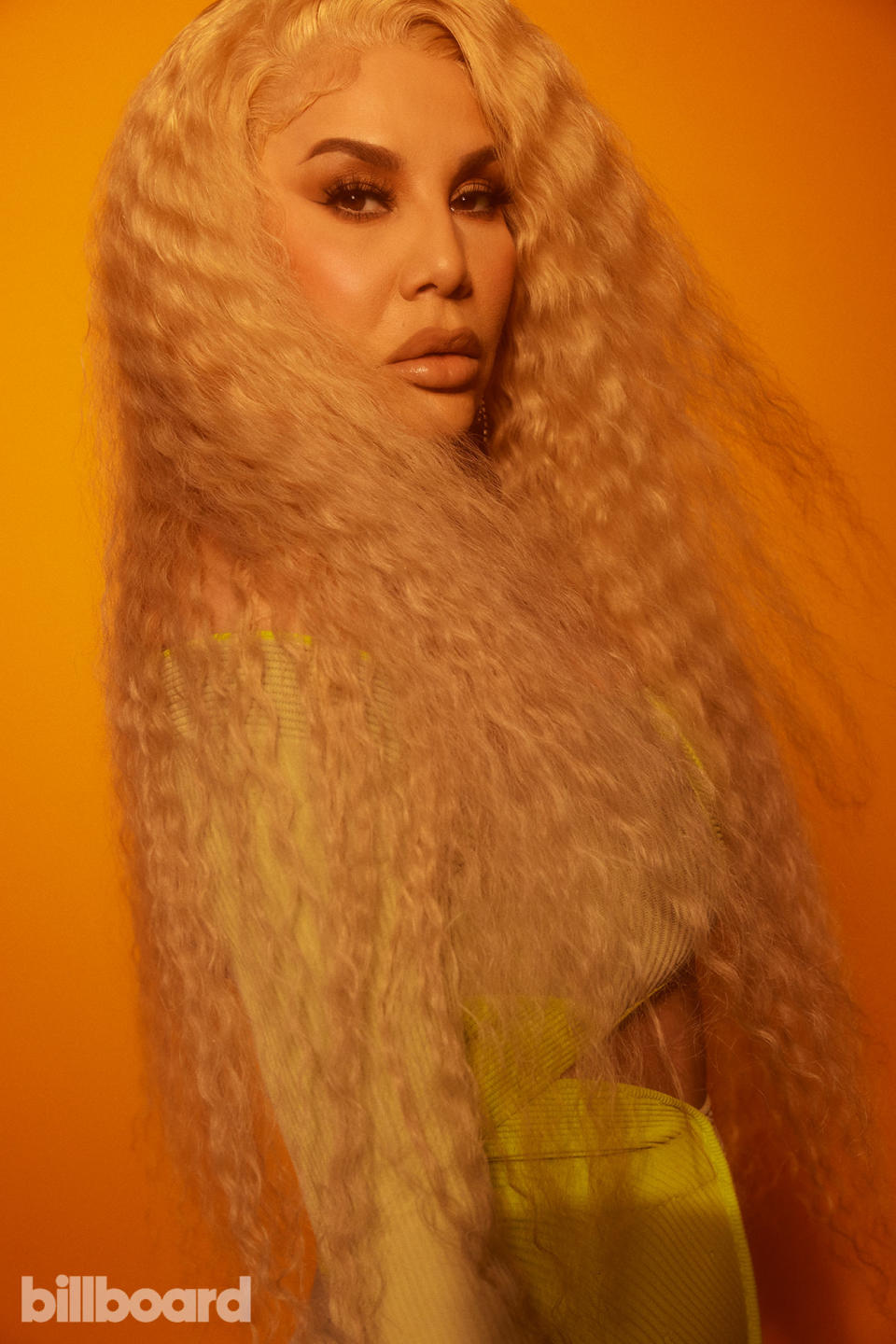
Staying true to those core values, adds her manager, Sonia Clavell — the rare female manager in reggaetón — has sometimes meant saying no to opportunities along the way.
“Ivy isn’t swayed by trends or money. Everything has to align with her values and her message,” says Clavell, who adds that she has seen a rise in interest in Ivy Queen since they began working together two years ago.
Notably, Bad Bunny, a fan and admirer, featured her on the remix of his hit “Yo Perreo Sola” (“I Dance Alone”), which he told Billboard that he wrote “as an homage to women and a nod of respect to women in general and to Ivy Queen specifically.”
“He has given me a space that not even the gentlemen I started my career with ever did,” says Ivy Queen, who made guest appearances multiple times on Bad Bunny’s World’s Hottest Tour last year. “To have this young kid, who sings what he wants, does what he wants, give me my place and my honors while I’m alive is huge for me.”
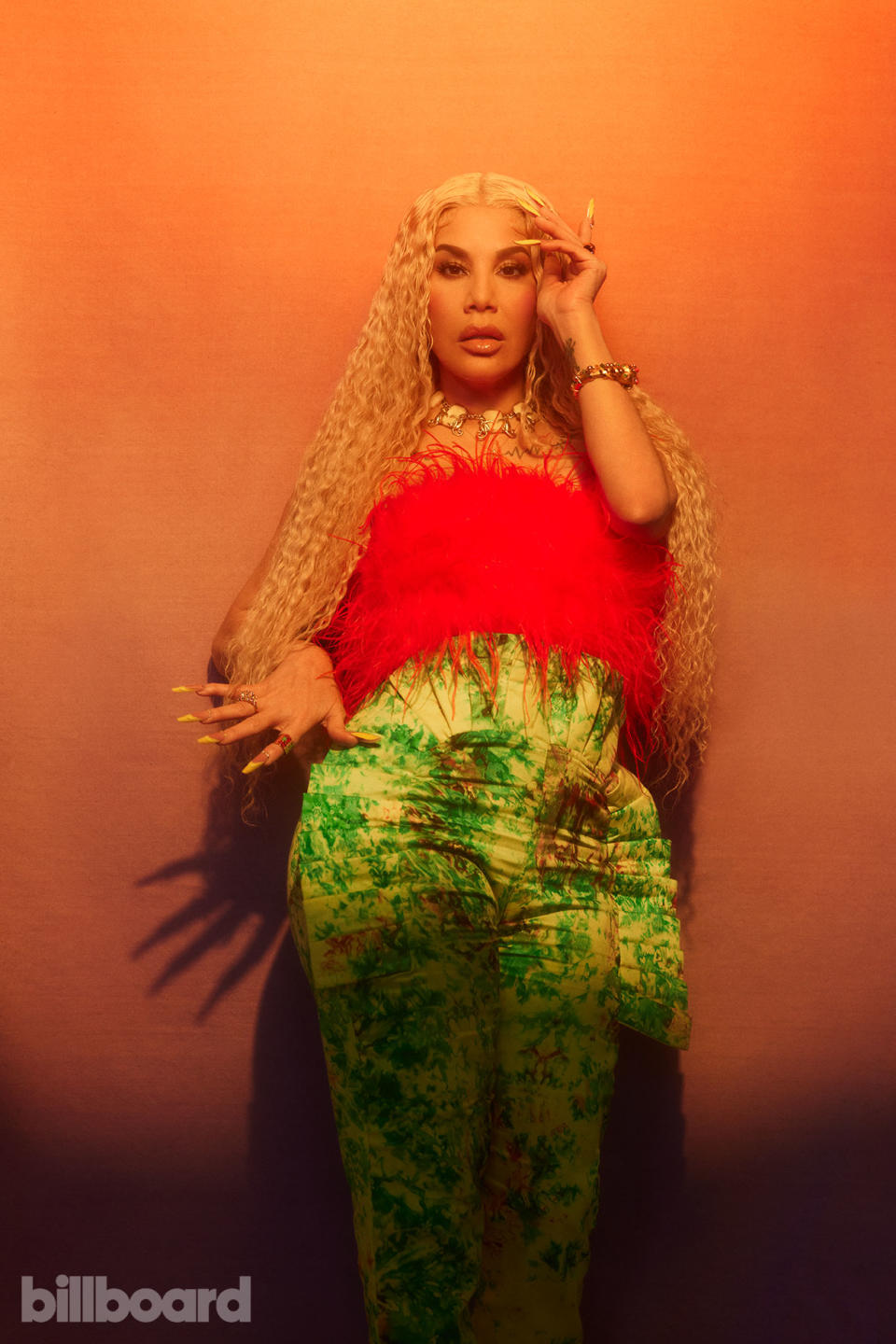
And while some of her reggaetón contemporaries have retired from music or announced plans to do so, Ivy Queen plans to continue getting her due.
“I’m a great writer, I’m a great rapper, I’m a great lyricist, I’m a great chef. I’m great at everything that I do,” she says, matter of factly. “Come on. We have to normalize loving ourselves and praising ourselves. I’ve never thought of retiring. I’m healthy, I’m rolling.”
This story originally appeared in the Feb. 25, 2023, issue of Billboard.
Best of Billboard
H.E.R. & Chris Brown 'Come Through' to No. 1 on Adult R&B Airplay Chart
Anne Wilson's 'I Still Believe in Christmas' Crowns Christian Airplay Chart

